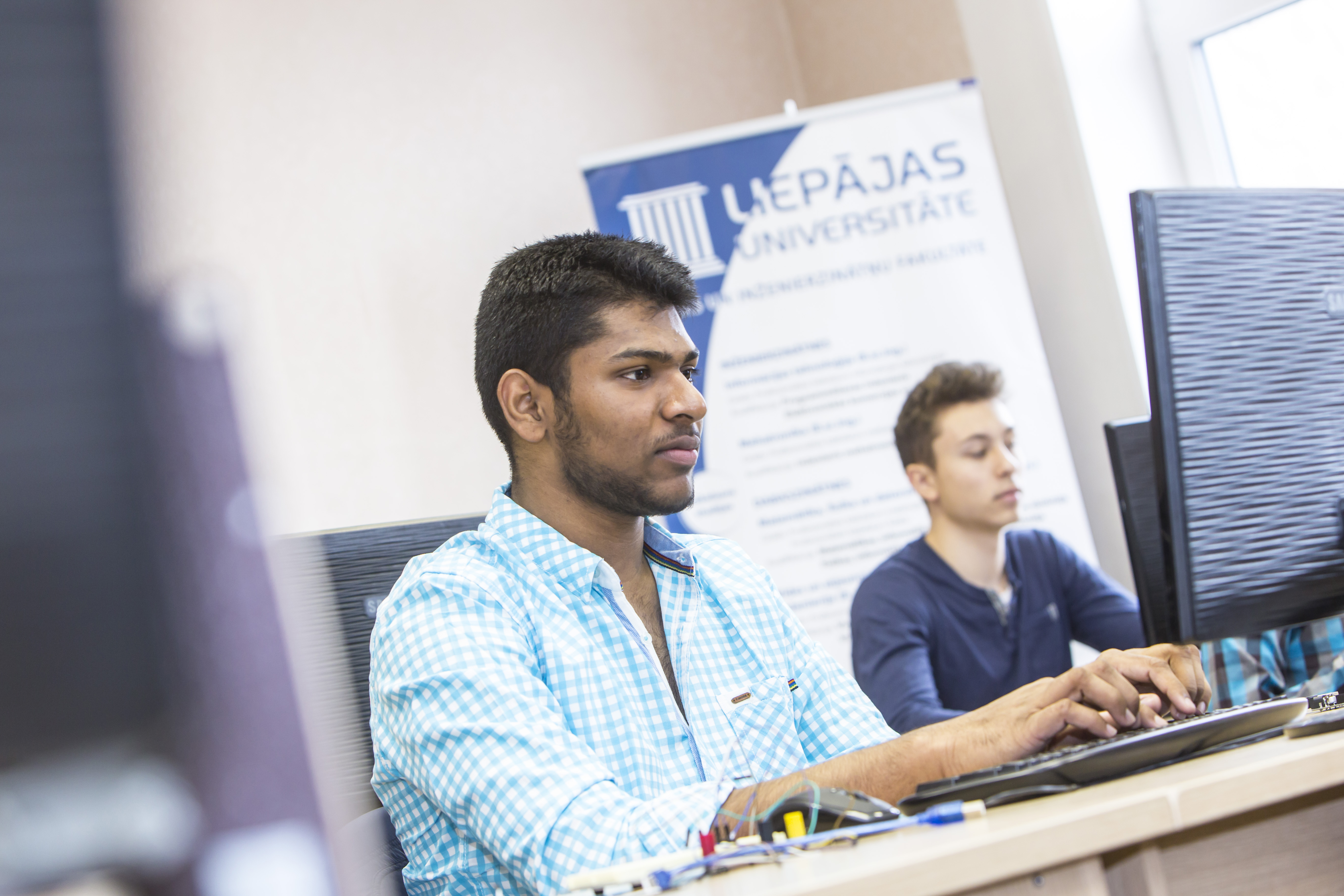Degree to be achieved: Professional MASTER'S degree in Information Technology - qualification of the Project Manager of Information Technology or the Senior Software Engineer
Duration of studies: 2 years
Type of studies: Full time
European Qualifications Framework (EQF) level: Level 7
International Standard Classification of Education (ISCED) level: Level 7
Language of instruction: English
Study programme director: Dr.sc.comp. Anita Jansone, e-mail: anita.jansone@liepu.lv
Fee per year: 2900 EUR
Admission requirements:
- Duration of studies is 2 years – Bachelor degree in Computer Sciences or Information Technologies
- Students, who obtained their Bachelor degree at least two years before, has to submit the thesis (5 to 10 pages) about a free chosen and topical research problem in the field of Computer Sciences or Information Technologies
- IELTS minimum overall grade of 5.5 or TOEFL iBT / paper based or English language profiency letter or LiepU English test
- Recorded interview
About the programme
The Professional Master’s study programme “Information technology” aim is to educate high qualification specialists for professional activity in the field of Technologies and Telecommunication with specialization in Management of Information Technology projects.
Career opportunities
After obtaining Professional Master’s degree graduates can work in organizations that carry out software development, deployment, maintenance, providing information technology consulting and information systems audit. Graduates can continue their education in Liepaja University doctoral "E-learning technology and management" study programme or in other Latvian universities or abroad.
Assessment
Assessment of students’ knowledge is a continuous process, which lasts during the whole semester and it is done on the basis of independent assignments and tests, as well as passing credit tests and examinations twice a year. During the semester each course envisages several independent assignments – practical and laboratory works, tests and reports. At the end of each course students pass a written or oral examination or a credit test. In some courses, during which both lectures and laboratory works are planned, students take both a credit test and an examination. Assessment is made by a ten-point scale or with the help of a credit test.
Language of the programme
Programme is conducted in English.
Programme structure
The student receives professional qualification of the professional Master degree, when he has fully acquired the study programme, has obtained practical skills during implementation of qualification and Master practices, has elaborated and successfully defended the diploma project and the master paper.
Information technology project manager acquires knowledge and skills, which are necessary for elaboration and introduction of the necessary software, planning, organizing and monitoring of maintenance projects, as well as for implementation of information technology consultations or system audit projects, and management according to the branch standards and quality requirements.
The size of the Professional Master’s study programme is 132 ECTS (88 CP) for 2 years.
- Latvian I, Latvian II
- Total Quality Management, Project Management, Business Process Modeling, Study project (IT project planning)
- Management Information Systems, Business intelligence, Digital media and communication
- Research methodology, Study project (IT project implementation)
- Server virtualization, Cloud Computing Architecture and Applications, High Performance Computing, Cloud Computing Design, Study project (Development of Cloud Computing system)
- Web-based application development, Development of mobile applications
- Financial management, Human Resource Management
- Internship I, II, Research practice
- Master thesis
Methods of teaching and learning
Acquisition of the study programme is organized in the form of lectures, seminars, practical classes and laboratory works, students’ independent assignment (individually, literary studies, development of a project in small groups). Implementation of each course envisages integration of knowledge, skills and abilities, succession of the courses in their relation to writing the students’ research project.
Individual planning
During the course students fulfill tasks of the practice, set up and present a term paper and the Master paper.
During the studies students have 2 practical works, where they strengthen the obtained knowledge and skills defined by the profession standards.


